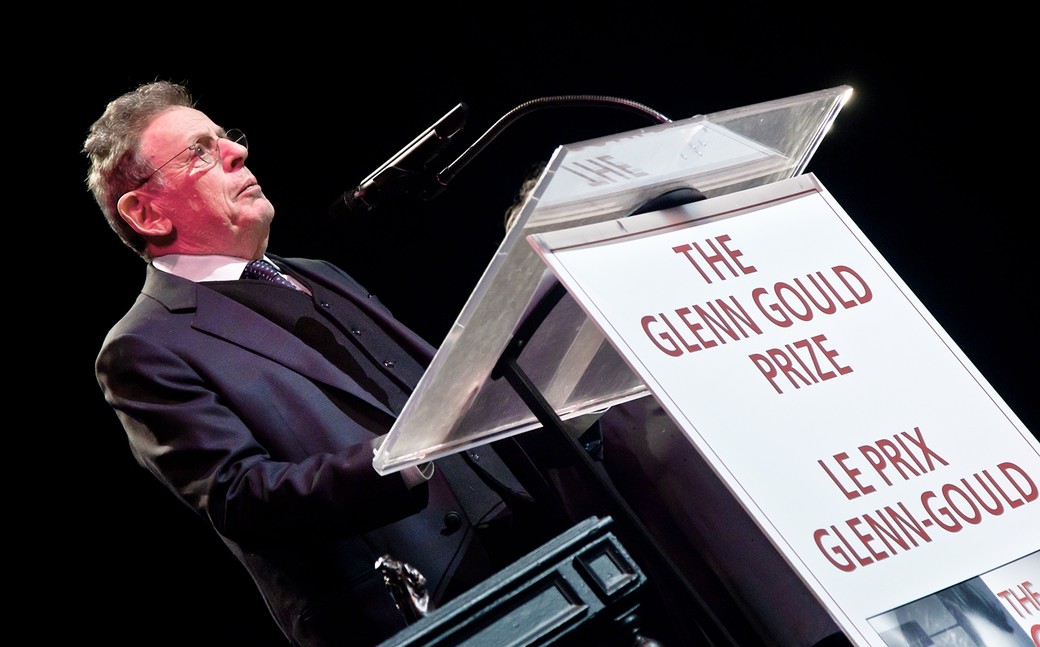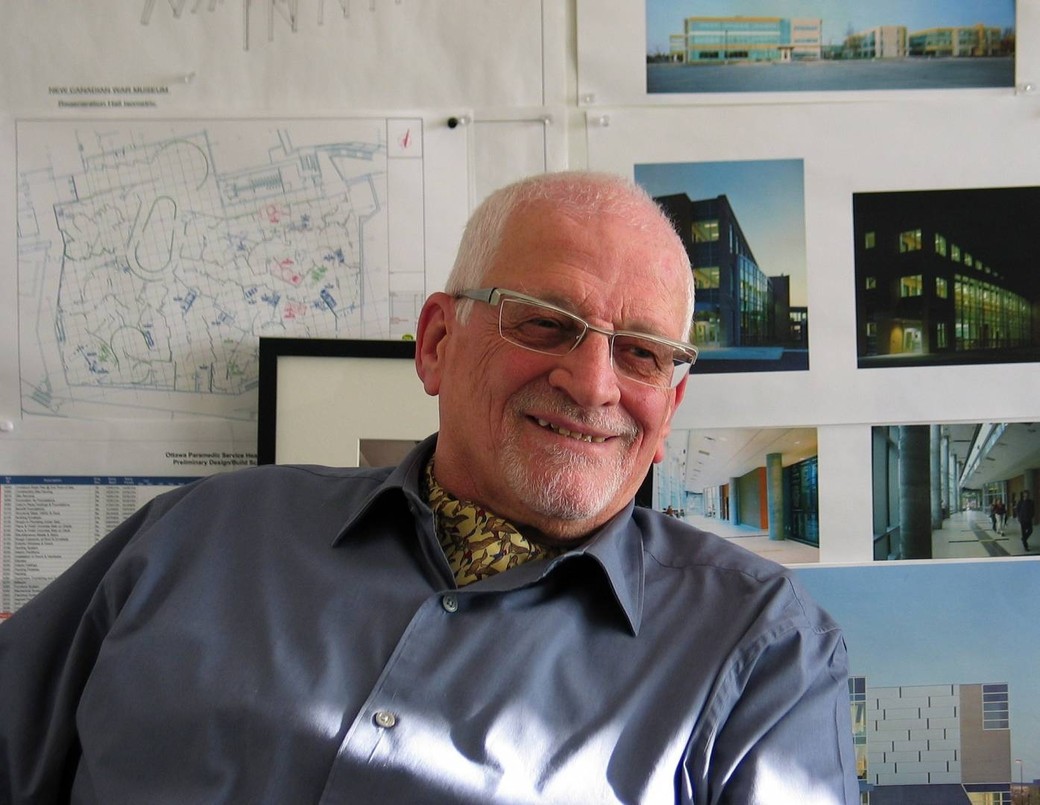
More than genius honoured as Philip Glass accepts Glenn Gould Prize
All photos by Andre Gagne.
What is a genius?
That question itched me throughout the The 11th Glenn Gould Prize Awards concert “The Genius of Philip Glass” at the National Arts Centre on November 26.
I know that the good folk who put this tribute together wanted to recognize the originality and brilliance of Glass's musical and creative output of the American Minimalist composer who has written some of the most popular contemporary classical music, film scores, operas and chamber music, over the last 50 years. Many have tried to imitate Glass's musical idiom, few have succeeded.
I'm just not that comfortable with that word “genius”. It smacks too much of elitism and a kind of intellectual caste system. With few exceptions, genius art has been art I didn't understand. I only got five pages into Stephen Hawking's “The History of Time” before trading it for a David Baldacci thriller. In my life-long journey from naiveté to wisdom, I've found art and music of other contemporary geniuses such as Jackson Pollock and Pierre Boulez so impenetrable, it as if the art didn't care whether I liked it or not. To hell with the audience. Think your three-year-old can paint her own “Wall of Fire”? Good luck with that.
The exception to that is Philip Glass. At it's best, Glass' revolutionary classical music based upon pulsing patterns of ascending and descending arpeggios that give Glass's music so much physical momentum is neither 'difficult' nor 'indulgent' but accessibly harmonic, and even emotional.
It's a technique that often works brilliantly in smaller pieces for solo piano, when his voice is as plaintive and as haunting as a spiritual chant and when paired with film, including his scores for “Koyaanisqatsi”, “Powaqqatsi” and “The Hours”; film scores so full of visual adrenaline they're capable of inducing vertigo.
However, what works on a smaller scale can flounder badly on a grand scale, making it challenging to sit through Glass's operas and symphonies.
So it was with mixed feelings when I heard that conductor Dennis Russell Davies and the National Arts Centre Orchestra and guests would be honouring Glass with a concert of his music.
Hosted by pop siren Petula Clark (who sang lark sang Glass' "Streets of Berlin") and with Glass attending in the front opera box, the concert opened with pianist Simone Dinnerstein playing the Glass' “Etude No. 2”, a piece of simple, Baroque concentric musical circles that built up to dramatic fusion of chords before Glass appeared on stage to accept the Glenn Gould prize and relay a charming personal anecdote about the Canadian pianist. Davies then led the NACO through Glass' spirited “Symphony No. 8” which during the first two movements, appeared to contain plenty of musical ideas and brilliant colour but missing connection. Happily, the 40-minute symphony found the consummation it had been looking for in the rapturous third movement. I've never seen the NAC Orchestra play a piece this difficult as energetically and with this much confidence.
The tribute concert's second half opened again with Dinnerstein playing Glass' “Etude No. 6” for solo piano. The most charming performance of the evening came with cellist Matt Haimovitz's playing of Glass' “Overture for Solo Cello” which led into a passionate play of Bach's “Prelude for cello Suite No. 1”, made all the more poignant with host Petula Clark sitting by his side, clearly lost in the beauty of the music.
The closing music was a blast of Glass's rousing “Movement 5” from his “10th Symphony”. With the brass and percussion in the lead, it turned out to be the fireworks the concert needed to get the sold-out house up on their feet.
In the end, I wouldn't have changed very much. Cut a speech here and include a film and dance excerpt instead. After all, Glass has written music for all the performing arts, and the night's program focussed too much on the sameness of Glass' compositional format. However, listen closely to his music long enough, and you find yourself drifting off into imagination and fantastic landscapes where anything is possible.
Now that's genius.













